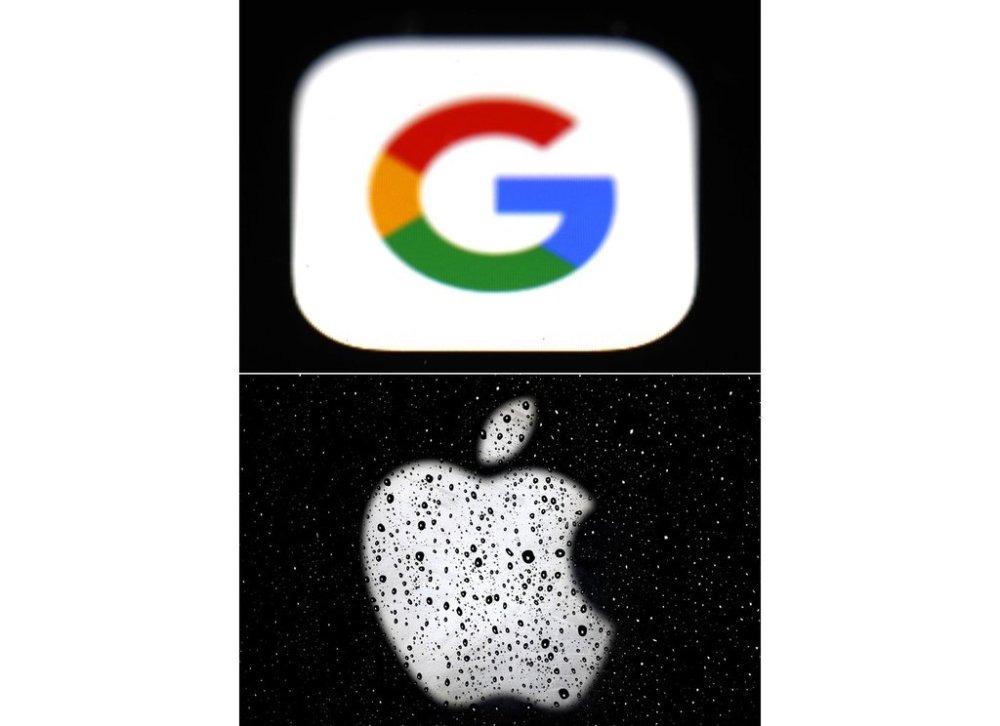Epic Games wins partial victory in Australian court against Google and Apple
Advertisement
Read this article for free:
or
Already have an account? Log in here »
To continue reading, please subscribe:
Monthly Digital Subscription
$0 for the first 4 weeks*
- Enjoy unlimited reading on winnipegfreepress.com
- Read the E-Edition, our digital replica newspaper
- Access News Break, our award-winning app
- Play interactive puzzles
*No charge for 4 weeks then price increases to the regular rate of $19.95 plus GST every four weeks. Offer available to new and qualified returning subscribers only. Cancel any time.
Monthly Digital Subscription
$4.99/week*
- Enjoy unlimited reading on winnipegfreepress.com
- Read the E-Edition, our digital replica newspaper
- Access News Break, our award-winning app
- Play interactive puzzles
*Billed as $19.95 plus GST every four weeks. Cancel any time.
To continue reading, please subscribe:
Add Free Press access to your Brandon Sun subscription for only an additional
$1 for the first 4 weeks*
*Your next subscription payment will increase by $1.00 and you will be charged $16.99 plus GST for four weeks. After four weeks, your payment will increase to $23.99 plus GST every four weeks.
Read unlimited articles for free today:
or
Already have an account? Log in here »
MELBOURNE, Australia (AP) — Epic Games, the company behind the popular online game Fortnite, on Tuesday won a partial victory in an Australian court. The case was brought by U.S. billionaire chief executive Tim Sweeney, who claimed that Google and Apple engaged in anti-competitive conduct in running their app stores.
Federal Court Justice Jonathan Beach upheld key parts of Epic’s claim that the tech giants breached Australian competition laws by misusing their market power against app developers and using restrictive trade practices.
Google and Apple ’s dominance of the app market had the effect of substantially lessening competition and breached Australian law, Beach found.

But the judge rejected some of Epic’s claim including that Google and Apple engaged in unconscionable conduct as defined by Australian law.
Sweeney is also challenging Google and Apple’s dominance in the app markets through the courts in the United States and Britain.
The litigation began in August 2020 when Apple’s App Store and Google’s Play Store expelled Fortnite because Epic installed a direct payment feature in the extraordinarily popular game.
The court ruled both companies pressured app developers including Epic through contracts and technology to sell their products through the two dominant app stores.
Epic said that the ruling will allow its Epic Games Store and Fortnite to come to Apple’s operating system iOS in Australia.
“An Australian court just found that Apple and Google abuse their control over app distribution and in-app payments to limit competition,” Epic said in a statement.
“There are 2,000+ pages of findings that we’ll need to dig into to fully understand the details,” the statement added. “This is a WIN for developers and consumers in Australia!”
Apple said the company “faces fierce competition in every market where we operate.”
“We welcome the Australian court’s rejection of some of Epic’s claims, however, we strongly disagree with the Court’s ruling on others,” Apple said in a statement.
Google said it would review the judgment. Google and Apple could potentially appeal the ruling before the Federal Court full bench.
“We disagree with the court’s characterisation of our billing policies and practices, as well as its findings regarding some of our historical partnerships, which were all shaped in a fiercely competitive mobile landscape on behalf of users and developers,” a Google statement said.
Beach has yet to release a 952-page judgment on Epic’s case against Apple or his 914-page judgment on the case against Google.
The judge gave an oral summary of his findings during a 90-minute hearing Tuesday.
Lawyers will return to court on a date yet to be set to argue what Epic is entitled to in terms of damages.

